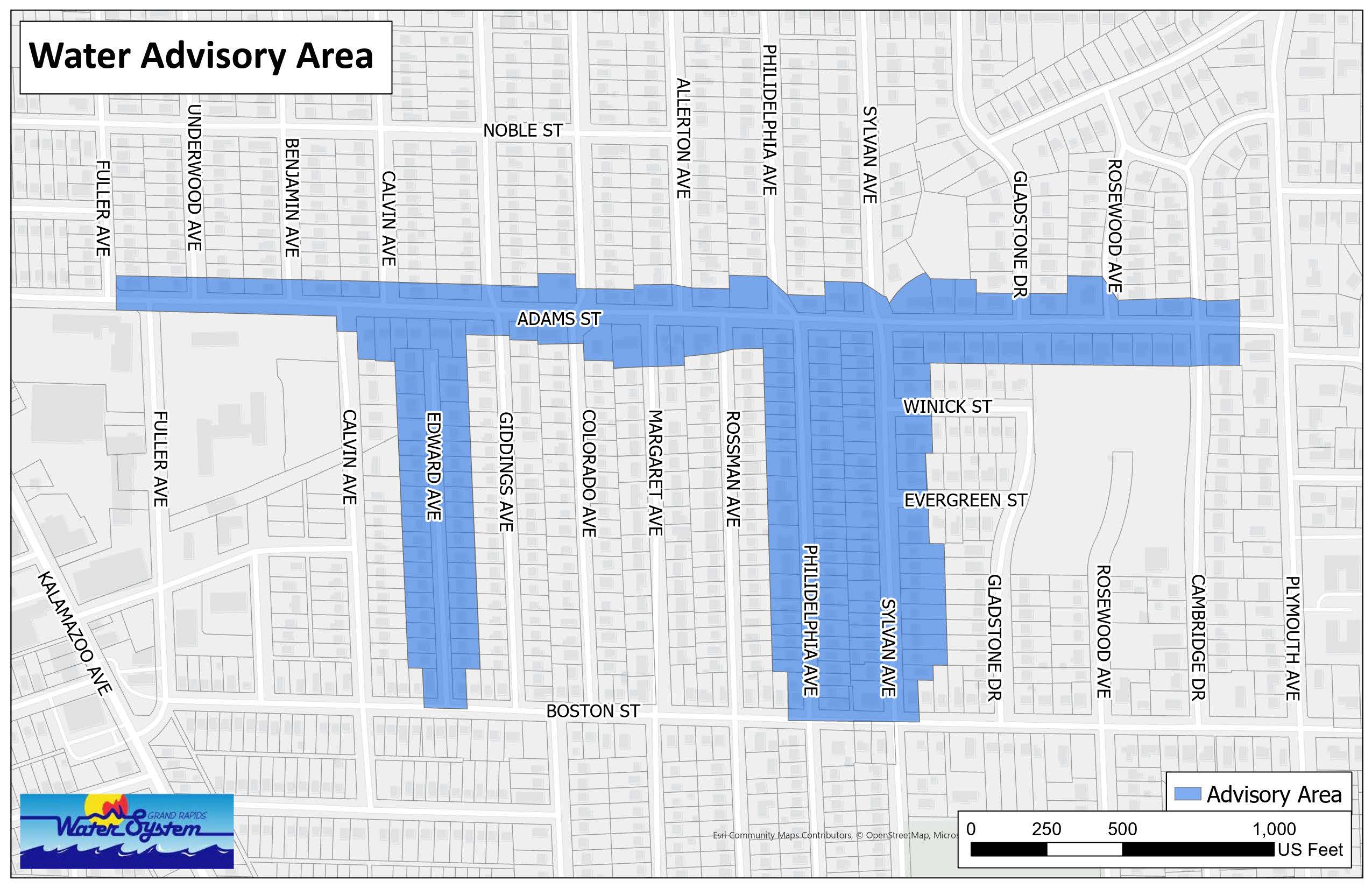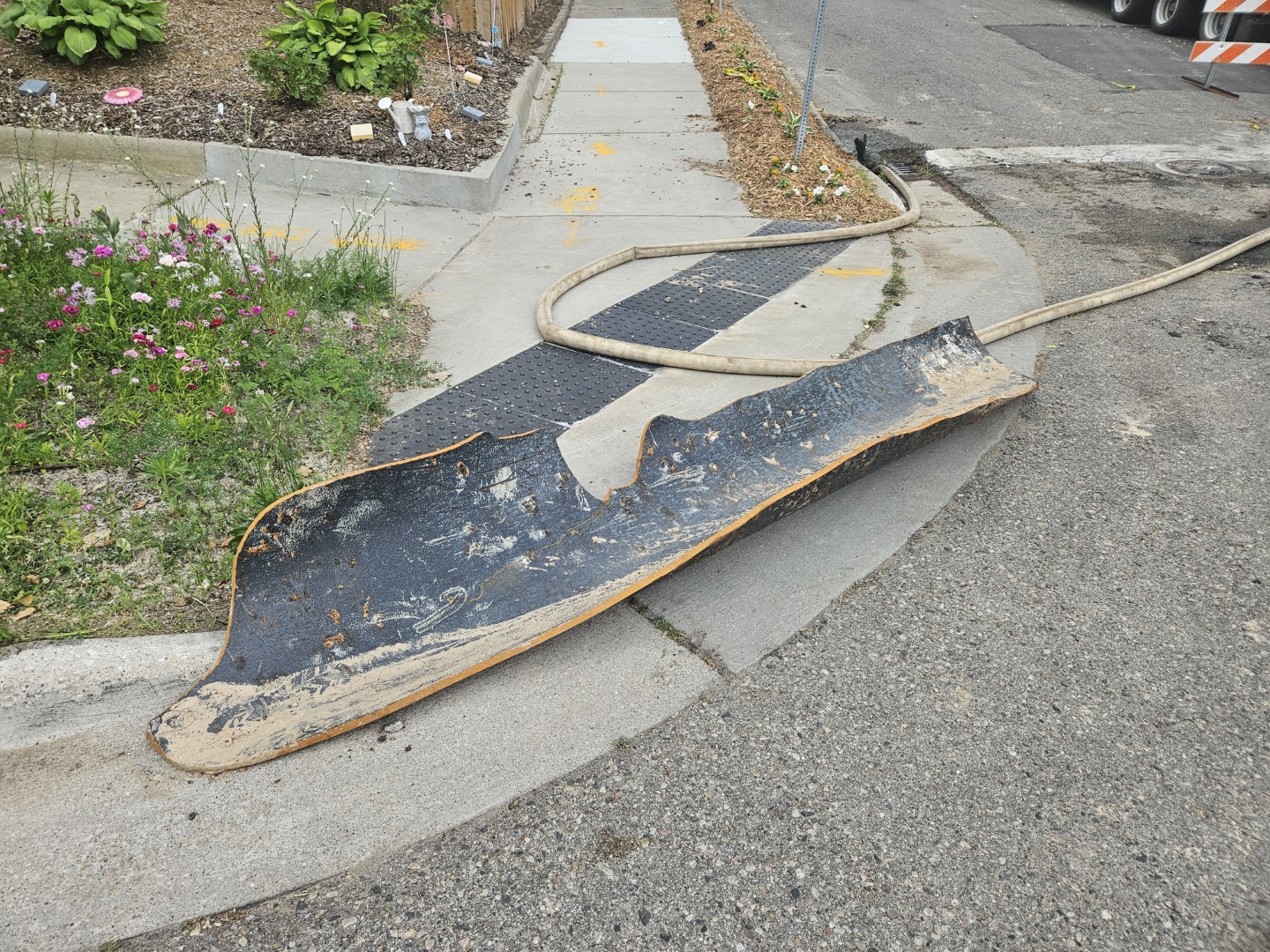Grand Rapids Boil Water Advisory: What You Need To Know Right Now!
So listen up, folks, here's the deal—Grand Rapids just dropped a boil water advisory, and yeah, this is serious stuff. If you're living in or around the area, you need to pay attention because your water supply might not be as safe as you think. This isn't some random scare; it's a precautionary measure to keep you and your loved ones healthy. So, let’s break it down step by step so you know exactly what’s going on and how to handle it.
You might be thinking, "Boil water? Really? In 2023?" But hey, stuff happens. Whether it's a busted pipe, contamination, or some other unexpected hiccup in the water system, these advisories are designed to protect you. The last thing anyone wants is a waterborne illness spreading through the community. That’s why staying informed is key.
Now, we’re not here to freak you out. Instead, we’re here to give you the straight scoop on what’s happening with the Grand Rapids boil water advisory, how it affects you, and what you can do to stay safe. Stick with us, and by the end of this, you’ll be a pro at navigating this situation. Let’s dive in!
- Did Justin Bieber Diddy Unveiling The Truth Behind The Controversy
- Adam Levine Still Married A Closer Look At His Relationship Journey And Everything Inbetween
What Exactly is a Boil Water Advisory?
Alright, let’s get down to basics. A boil water advisory is basically a heads-up from local authorities telling you that your tap water might not be safe to drink. It could be due to a variety of reasons, like a water main break, a treatment plant issue, or even a natural disaster messing with the water supply. Whatever the cause, the advisory is put in place to ensure your health and safety.
When an advisory is issued, it means you need to boil your tap water before using it for drinking, cooking, brushing your teeth, or anything else that involves ingestion. Boiling kills off any potential bacteria, viruses, or other nasties that might’ve snuck into the water supply.
Here’s the kicker: these advisories are temporary. Once the water system is back up to snuff and tests confirm it’s safe, the advisory gets lifted. But until then, it’s all about playing it safe.
- Helen And Olga Where Are They Now The Untold Story Of Two Icons
- Loki News The Latest Buzz In Entertainment And Pop Culture
Why Did Grand Rapids Issue a Boil Water Advisory?
Grand Rapids didn’t just pull this advisory out of thin air. There’s always a reason behind it, and in this case, it’s likely tied to some sort of disruption in the water system. Maybe there was a water main break that allowed contaminants to seep in. Or perhaps there was an issue at the water treatment plant affecting the quality of the water. Whatever the cause, the city is taking the necessary steps to address it.
According to recent reports, the advisory was triggered after routine testing detected higher-than-normal levels of bacteria in certain areas of the water distribution system. Yikes, right? But don’t panic—this is exactly why advisories exist. They’re a proactive measure to prevent any potential health risks.
Common Causes of Boil Water Advisories
- Water main breaks
- Power outages at water treatment plants
- Flooding or natural disasters
- Equipment failures
- Unusual water quality test results
It’s worth noting that these advisories are pretty common in cities across the U.S., especially during extreme weather events or infrastructure issues. Grand Rapids is no exception. The good news is that they’re typically resolved quickly once the root cause is identified and fixed.
How Does the Boil Water Advisory Affect You?
Now that we’ve covered the "what" and "why," let’s talk about the "how." If you’re under a boil water advisory, there are specific actions you need to take to protect yourself and your family. Here’s the lowdown:
First off, any water you plan to drink, cook with, or use for brushing your teeth needs to be boiled for at least one minute. Yep, one full minute. This ensures that any harmful pathogens are killed off. And don’t forget to let it cool before using it!
But wait, there’s more. You also need to be cautious about using tap water for things like washing dishes, preparing food, or even giving water to your pets. If boiling isn’t an option, you can opt for bottled water as a safe alternative.
Activities to Avoid During a Boil Water Advisory
- Drinking unboiled tap water
- Using tap water to prepare food
- Brushing teeth with unboiled water
- Giving tap water to pets
And here’s a pro tip: if you’re washing dishes, make sure to use hot, soapy water and rinse them with boiled or bottled water. Same goes for washing your hands—if you don’t have access to boiled water, use hand sanitizer as a backup.
Steps to Follow During a Boil Water Advisory
Alright, so you’ve got the advisory info, but what’s the actual plan? Here’s a quick rundown of what you need to do:
Step one: Boil your water. Simple, right? Just fill a pot with tap water, bring it to a rolling boil for one minute, and let it cool before using it. If you’re at a higher elevation, you might need to boil it for a bit longer, but for most people in Grand Rapids, one minute should do the trick.
Step two: Stock up on bottled water if you can. It’s a convenient backup option for drinking, cooking, and other essential uses. Plus, it saves you the hassle of constantly boiling water.
Step three: Keep an eye on updates from local authorities. They’ll let you know when the advisory is lifted and when it’s safe to go back to using tap water as usual.
Tips for Staying Safe During the Advisory
- Boil water for at least one minute
- Use bottled water as an alternative
- Stay updated on advisory status
- Practice good hygiene habits
Remember, this isn’t forever. It’s just a temporary measure to keep everyone safe while the water system gets back on track.
Is Bottled Water a Better Option?
Let’s be real—boiling water can be a hassle, especially if you’ve got a big household or limited access to cooking equipment. That’s where bottled water comes in. It’s a super convenient option that eliminates the need for boiling altogether.
But here’s the thing: not all bottled water is created equal. Make sure you’re grabbing water that’s labeled as "drinking water" or "purified water." These are your safest bets. Also, keep an eye on expiration dates—yeah, bottled water can expire too!
Pro tip: if you’re stocking up on bottled water, consider buying in bulk. It’s usually cheaper and ensures you’ve got enough to last until the advisory is lifted.
When Will the Advisory Be Lifted?
We get it—waiting for the advisory to end can feel like forever. But here’s the deal: the duration depends on the cause of the issue and how long it takes to resolve it. In most cases, advisories last anywhere from a few hours to a couple of days. Once the water system is back to normal and testing confirms it’s safe, the advisory gets lifted.
Local authorities will provide updates through official channels, so keep an eye on news outlets, social media, and the city’s website for the latest info. They’ll let you know when it’s safe to go back to using tap water without boiling it.
How to Stay Informed
- Follow local news stations
- Check the city’s official website
- Sign up for emergency alerts
- Monitor social media updates
Being in the loop is crucial during situations like this. The more informed you are, the better prepared you’ll be to handle it.
What Happens After the Advisory is Lifted?
Once the all-clear is given, you might be wondering what comes next. The good news is, life can pretty much go back to normal. However, there are a few things you should do to ensure your water is safe:
First, flush your pipes by running the tap for a few minutes. This helps clear out any potentially contaminated water that might still be sitting in your plumbing. It’s a quick and easy step that can make a big difference.
Second, clean any appliances that use water, like coffee makers or ice machines. These can sometimes hold onto old water, so giving them a good rinse is a smart move.
Lastly, if you’ve got any water filters installed, consider replacing them. Filters can trap contaminants, so starting fresh is always a good idea.
Common Questions About Boil Water Advisories
Can I Shower During a Boil Water Advisory?
Yes, you can shower as long as you’re not swallowing the water. Just be mindful of any open wounds or sensitive skin, and try to keep the water out of your mouth.
Is It Safe to Wash Dishes With Tap Water?
It’s generally safe to wash dishes with tap water, but you should rinse them with boiled or bottled water afterward. Alternatively, you can use a diluted bleach solution as a disinfectant.
What Should I Do if I Accidentally Drink Unboiled Water?
Don’t panic, but keep an eye on any symptoms like nausea, diarrhea, or vomiting. If you notice anything unusual, contact a healthcare professional just to be safe.
Conclusion: Stay Safe, Stay Informed
Alright, that’s the scoop on the Grand Rapids boil water advisory. It might seem like a hassle, but trust us—it’s a necessary step to protect your health. By following the guidelines, staying informed, and taking a few simple precautions, you can navigate this situation with ease.
So here’s what we want you to do next: share this article with your friends and family in Grand Rapids. The more people who know about the advisory, the better prepared everyone will be. And hey, while you’re at it, check out some of our other articles for more tips and tricks on staying safe and healthy.
Stay safe out there, Grand Rapids! You’ve got this!
Table of Contents
- What Exactly is a Boil Water Advisory?
- Why Did Grand Rapids Issue a Boil Water Advisory?
- How Does the Boil Water Advisory Affect You?
- Steps to Follow During a Boil Water Advisory
- Is Bottled Water a Better Option?
- When Will the Advisory Be Lifted?
- What Happens After the Advisory is Lifted?
- Common Questions About Boil Water Advisories
- Conclusion: Stay Safe, Stay Informed



Detail Author:
- Name : Vernie Ankunding
- Username : eduardo.macejkovic
- Email : brown75@corkery.com
- Birthdate : 1983-12-30
- Address : 17419 Fritsch Ville Mckenziestad, IN 09183-5455
- Phone : (570) 984-6952
- Company : Schaefer, Schuppe and Volkman
- Job : Secretary
- Bio : Praesentium omnis placeat quia molestias quam. Delectus atque ea nobis natus. Libero fugit velit quis. Impedit delectus quod sunt saepe saepe.
Socials
tiktok:
- url : https://tiktok.com/@monahant
- username : monahant
- bio : Ex ad necessitatibus unde laboriosam labore maxime aut voluptatem.
- followers : 3975
- following : 2529
linkedin:
- url : https://linkedin.com/in/theamonahan
- username : theamonahan
- bio : Est earum est maiores qui sint.
- followers : 1753
- following : 1521